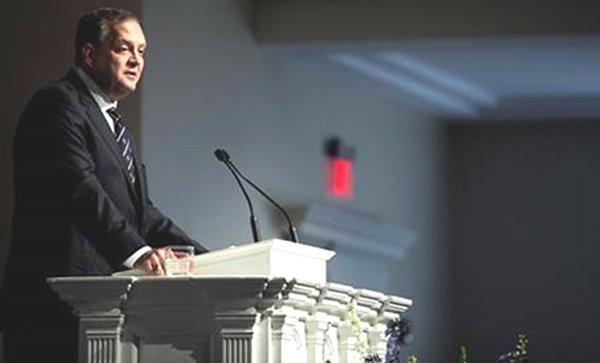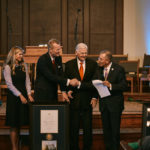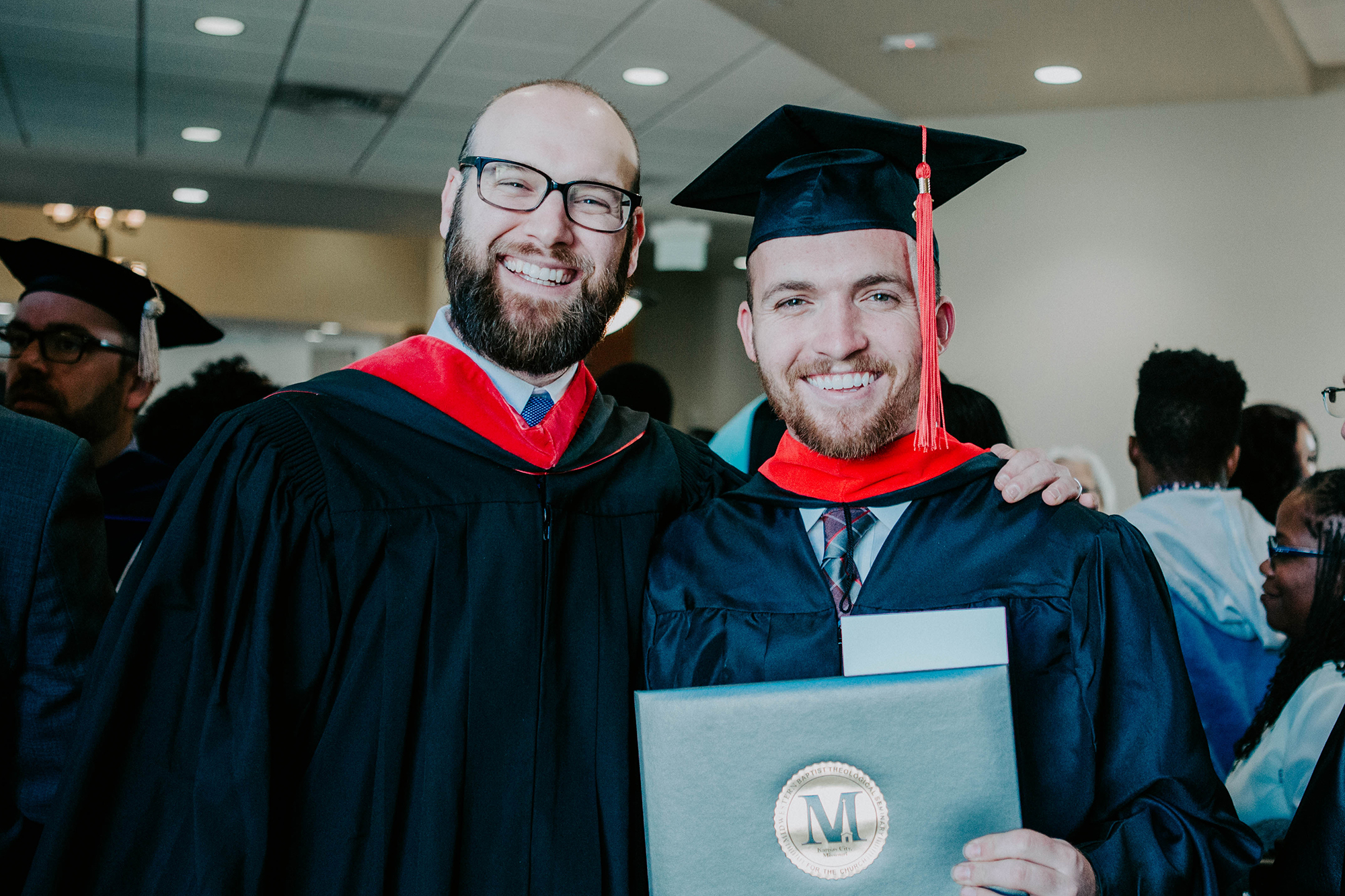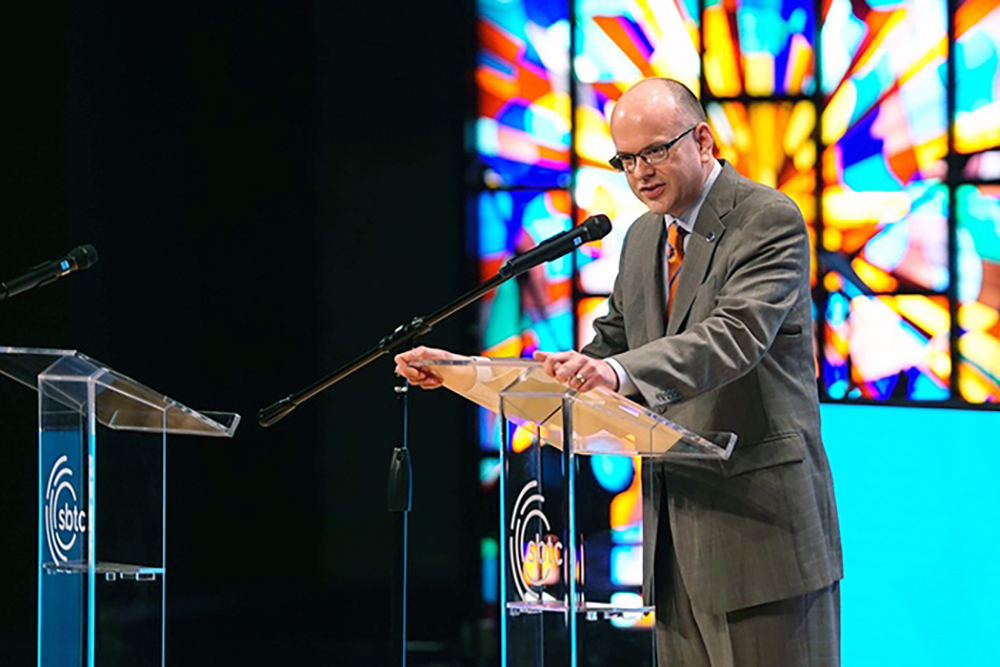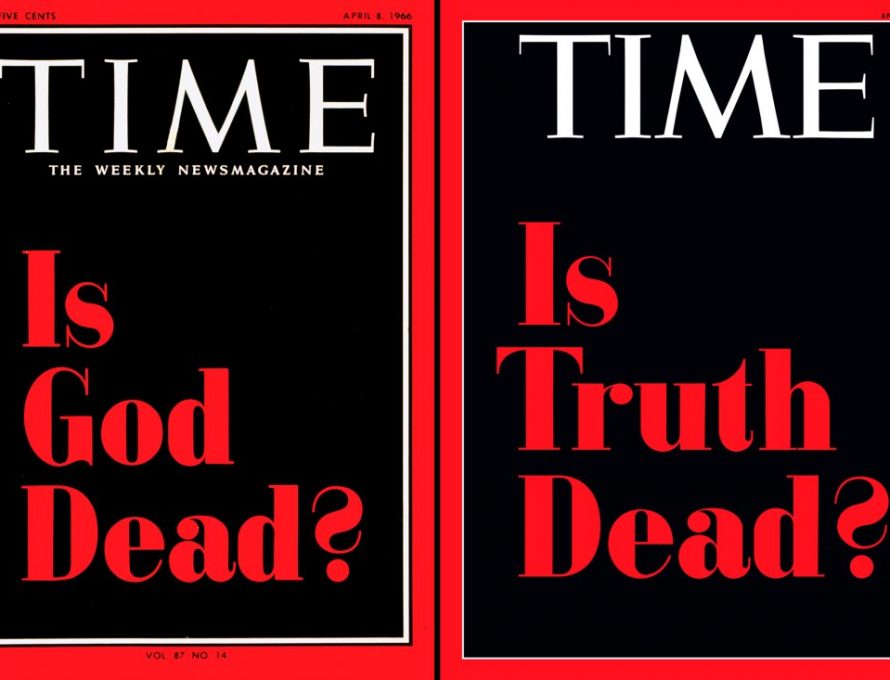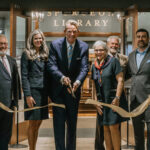
In today’s From the Seminaries: Southern Baptist Theological Seminary; Midwestern Baptist Theological Seminary
SBTS — ‘a place for truth,’ Mohler says at convocation
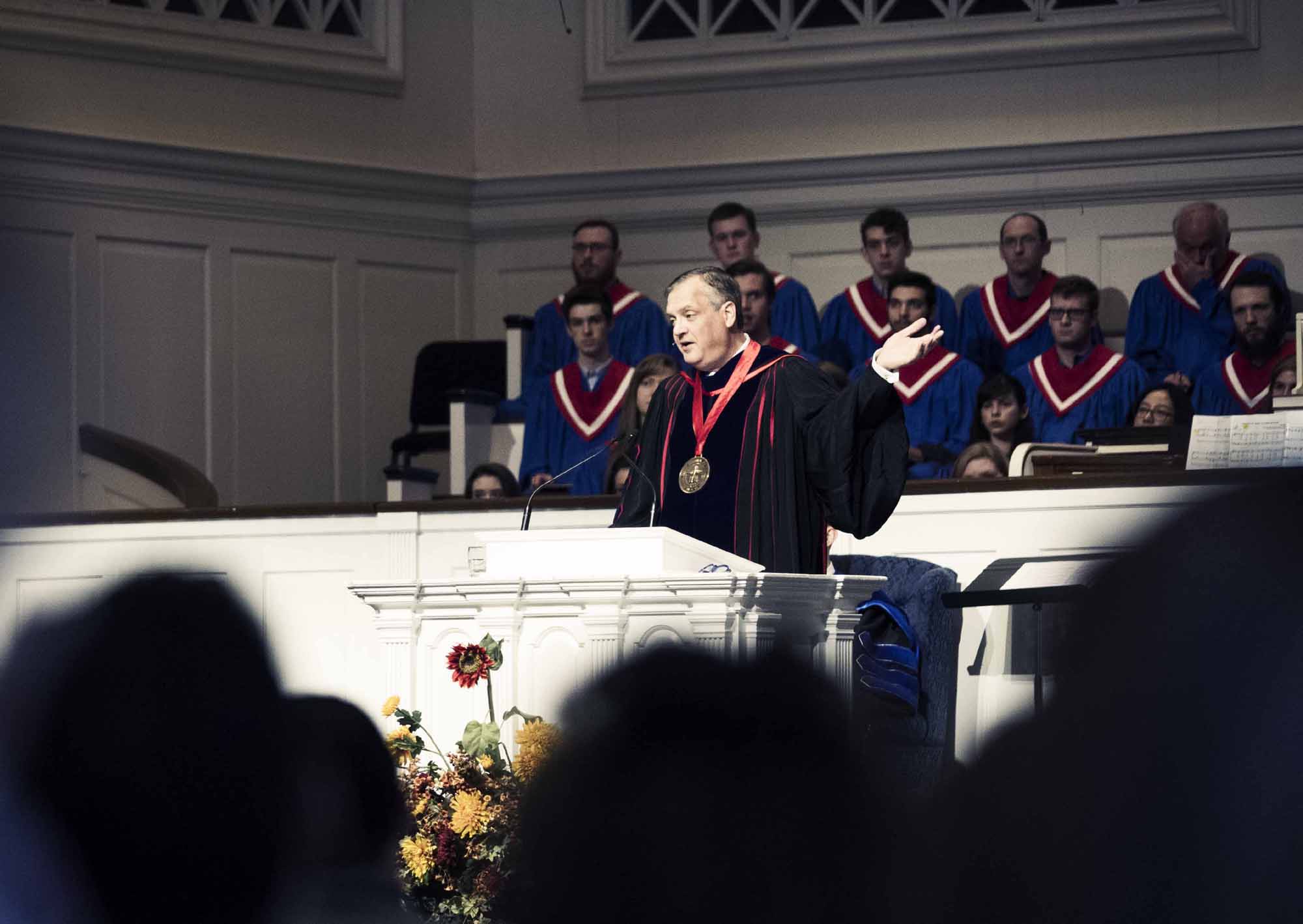 LOUISVILLE, Ky. (BP) — An ironclad commitment to truth is the defining quality of a faithful theological institution, R. Albert Mohler Jr., president of Southern Baptist Theological Seminary, said during spring convocation in Alumni Memorial Chapel.
LOUISVILLE, Ky. (BP) — An ironclad commitment to truth is the defining quality of a faithful theological institution, R. Albert Mohler Jr., president of Southern Baptist Theological Seminary, said during spring convocation in Alumni Memorial Chapel.
In a Feb. 6 address titled, “Recovering and Sustaining the Theological Mission of Christian Education,” Mohler emphasized the centrality of the theological disciplines in any truly Christian understanding of the world.
“There is not going to be any non-theological Christianity,” Mohler said. “By definition, it won’t exist. There is not going to be a Christianity where theology is not central to the entire enterprise of the church because it’s going to take Christian thinking to have Christians. The center of theology is truth. Theology is the only discipline that matters because truth exists and truth may be known, and that is God’s gift of revelation.”
Twenty-five years after his election as president of Southern Seminary, Mohler returned to a book he found personally instructive and helpful at the beginning of his tenure — one marked by reforming the institution toward more conservative theological ideals. Theologian David F. Wells, in his 1993 book, “No Place For Truth,” wrote that evangelicalism as a whole was in a state of crisis because it no longer stood for truth or theological precision.
An “evangelical empire” churned out fewer and fewer theological books. Church theology declined, and intellectual life went with it. Mass media had overtaken the world and become more intrusive than ever. After decades of “epistemological [or one’s theory of knowledge] and ethical decay” in American universities, the postmodern rejection of absolute truth seeped into the mainstream, Mohler said.
“[Moral relativism] was imported mostly to the vast majority of Americans not by a tenured professor at Cornell or Yale or Harvard, but by television,” he said. “The moral, cultural, epistemological revolution probably owes more to professor Homer Simpson than to any tenured member of an Ivy League faculty.”
That crisis has only intensified since. Wells wrote in the years before the internet, which is now immediately available to virtually every person in the world and has greatly accelerated the news cycle. News outlets like The New York Times — its editorial staff filled with products of the 20th-century university culture that denied the existence and knowability of truth — began wistfully longing for a return to truth with no ability to claim it, Mohler said.
And the church suffered. Those who had been on left wing of evangelicalism in 1993 have simply left for mainline liberal Protestantism, Mohler said. Evangelism remained superficial, and the generation once attracted to it began to move on. The pressures of the modern age provided little incentive to stay, Mohler said, and the theological weight of evangelicalism has been decreasing each decade.
“There are fewer and fewer people in the pews because — exactly as we have known ever since the New Testament — the more you try to make yourself relevant, the less relevant you become. And that’s exactly what has happened. In the name of remaining relevant to the culture, mainline Protestantism has abandoned the Gospel, and then people just abandoned the churches. They have been hemorrhaging their membership by the millions.”
The solution, Mohler said, is an invigorated evangelicalism committed both to truth and theological vocation. Despite existing in an increasingly secularized and atheistic world, seminaries willing to stand for truth participate in a profound new narrative.
“That other story is being told right now in this room. That story is being told in a resurgent evangelicalism,” Mohler said. “The other story that is being told is of the recovery of theology, not just as an academic discipline — although that is fundamentally important — but of the recovery of theology as the centering reality of Christian understandings of the world and humanity and morality and art and history and music.”
Theology is the natural extension of the embrace of truth, Mohler said, and therefore there are no non-theological disciplines at a seminary resolved to know and teach the truth. Everything a student studies at such an institution — homiletics, evangelism, missions, exegesis, hermeneutics — emerges out of that theological commitment, Mohler said.
“If The Southern Baptist Theology Seminary and Boyce College mean anything, it must mean we are here in the name of truth. We are here to be obedient to the truth. We are here to teach the truth; we are here to be taught the truth,” he said. “We believe in truth not because we believe in ourselves, but because we believe in the sovereign, omnipotent God of the universe who by His mercy has revealed Himself to us. He is there and He is not silent.”
Audio and video of Mohler’s convocation address are available at equip.sbts.edu.
Midwestern announces organizational changes
KANSAS CITY, Mo. (BP) — Jason Allen, president Midwestern Baptist Theological Seminary and College, has announced changes to Midwestern’s organization structure.
Noting the need to have the right people in optimal positions, Allen has named John 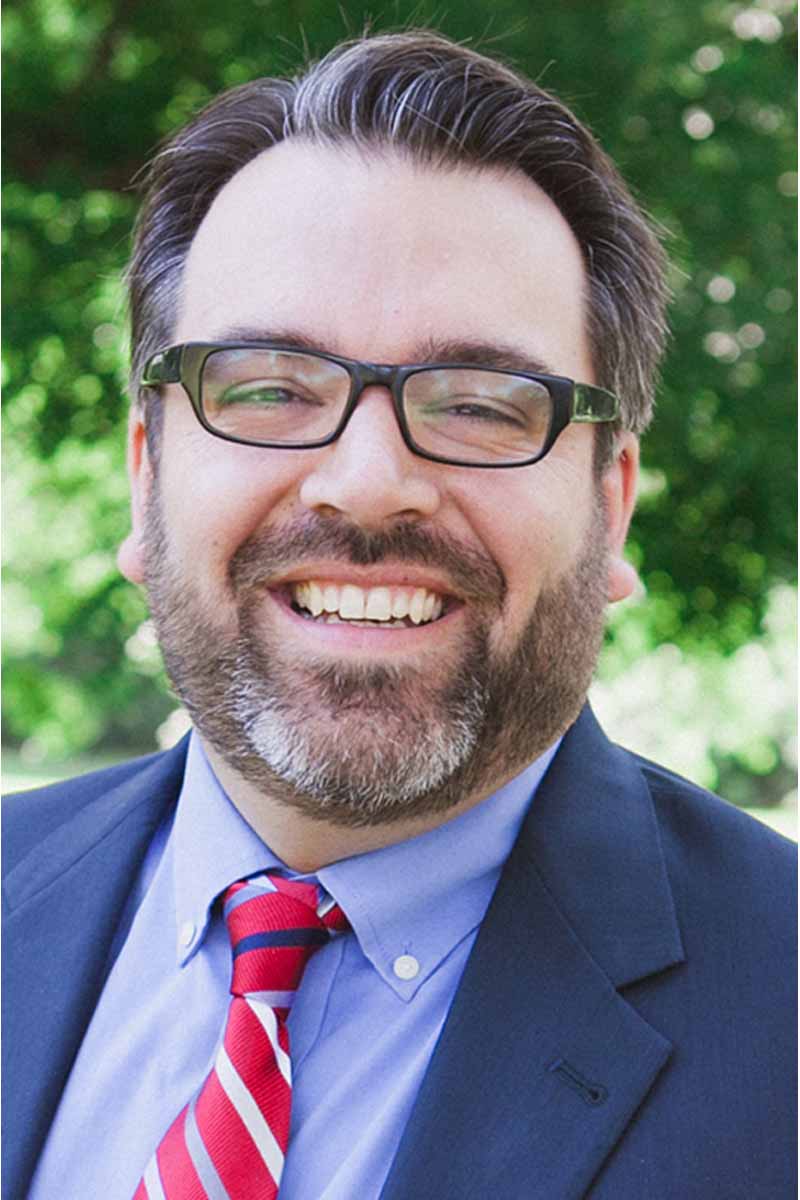 Mark Yeats as dean of students and Sam Bierig as dean of Midwestern College.
Mark Yeats as dean of students and Sam Bierig as dean of Midwestern College.
“God’s favor on Midwestern Seminary and the substantial enrollment growth He’s given us has prompted a season of institutional evaluation related to our organizational structure,” Allen said in a Feb. 7 seminary news release. “Our conversations have been both thorough and healthy, clarifying the seminary’s current needs and opportunities, and how best to support those.”
Yeats, who has served as dean of Midwestern College since arriving in Kansas City four years ago, will become dean of students effective immediately.
Yeats’ new role will benefit his skill set well, Allen said, noting that he has “demonstrated an ability to wear many different institutional hats, all with excellence. As he enters office as dean of students, our goal is to not only recruit and retain students, but to see them flourish while at Midwestern Seminary and College.” In advancing a program of student success, Yeats will work within MBTS academic services alongside the school’s other deans and faculty as well as with the institutional relations division.
Allen filled the open position of dean of Midwestern College from within the institution’s ranks, naming Bierig to the position after having served as the seminary’s director of student life the past four years.
Yeats laid “a great foundation for Midwestern College,” Allen said. “I’m delighted for Sam Bierig to lead it into a new season of growth.
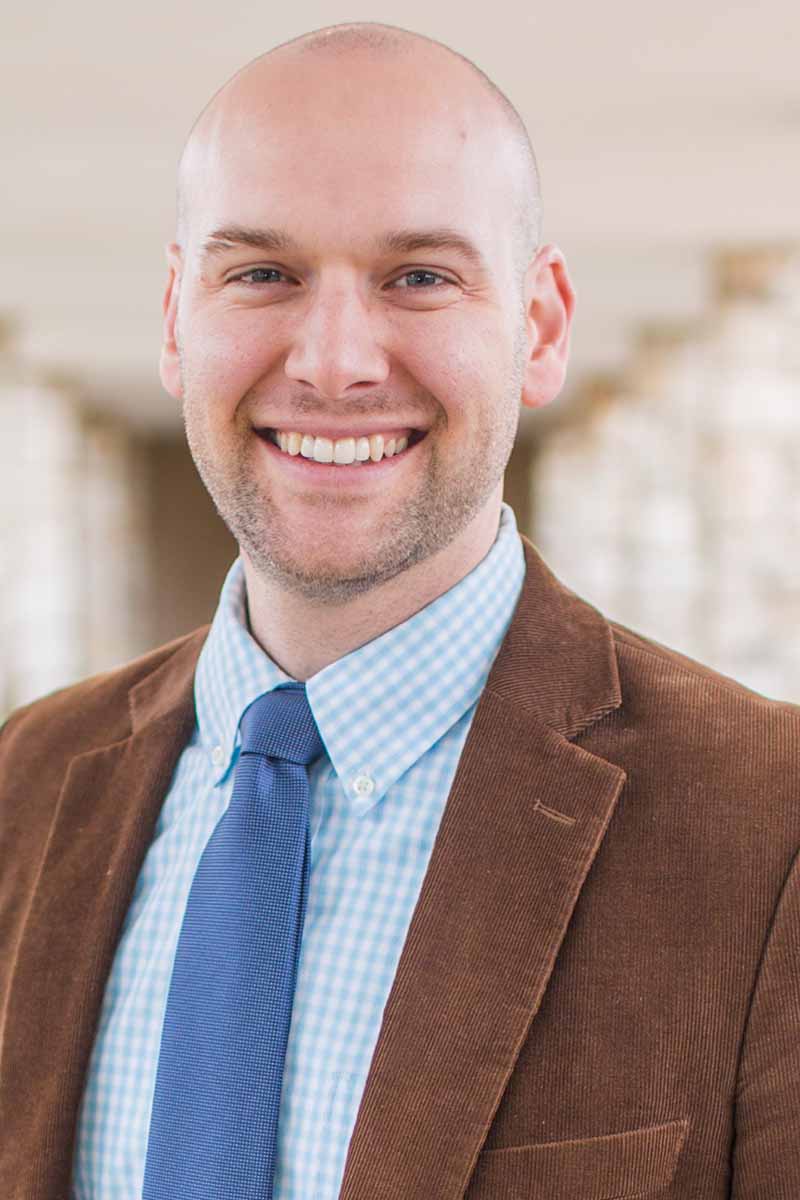 “Though a young man, he’s a proven leader. His track record with student life, campus events and student recruitment well position him to lead Midwestern College. Students gravitate to him for all the right reasons. It’s particularly gratifying to me that Midwestern Seminary has matured to the point where we can look internal for such a strategic hire.”
“Though a young man, he’s a proven leader. His track record with student life, campus events and student recruitment well position him to lead Midwestern College. Students gravitate to him for all the right reasons. It’s particularly gratifying to me that Midwestern Seminary has matured to the point where we can look internal for such a strategic hire.”
Allen added, “With the opening of the Mathena Student Center this coming summer and the many other amenity additions and upgrades to our campus in recent years, we believe we’re in a position for our undergraduate program to enter a new phase of growth. We look forward to announcing new initiatives in this regard in the season ahead.”
Of his new responsibilities at Midwestern College, Bierig said, “This is a great and sobering stewardship …. By God’s grace, we will seek to train as many God-called men and women from the next generation for the church as God will give us.”
In addition to being named dean of Midwestern College, Bierig was also appointed as assistant professor of Christian studies.
In faculty moves, Allen announced that Rustin Umstattd now will oversee the doctor of educational ministry program.
“Dr. Umstattd’s extensive experience with our doctoral programs, the way he’s handled administrative roles in matters related to accreditation and assessment, and his balance between the academy and the local church, make him a natural person to oversee our D.Ed.Min. program,” Allen said.
“He will strengthen this program by shepherding the growing number of D.Ed.Min. students, by building partnerships with Christian education societies and fellowships, and by providing valued input and support to the overall doctoral studies programs. Dr. Umstattd will continue to serve us in the classroom, while he brings renewed focus on this often-overlooked degree.”
Umstattd has served as assistant professor of theology at Midwestern Seminary since 2008 and he currently co-pastors Northland Baptist Church in Kansas City.

